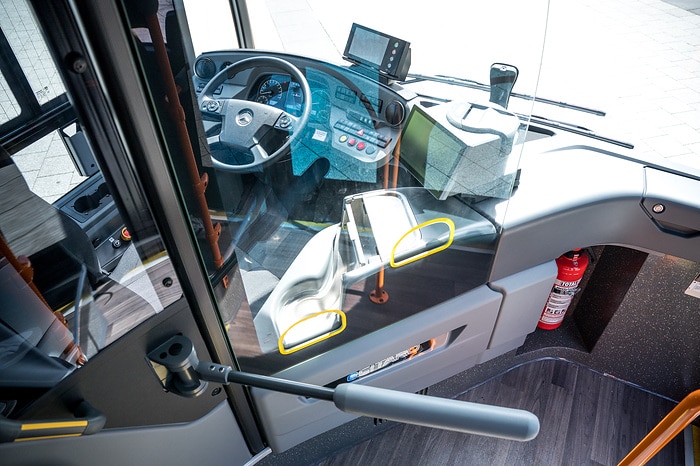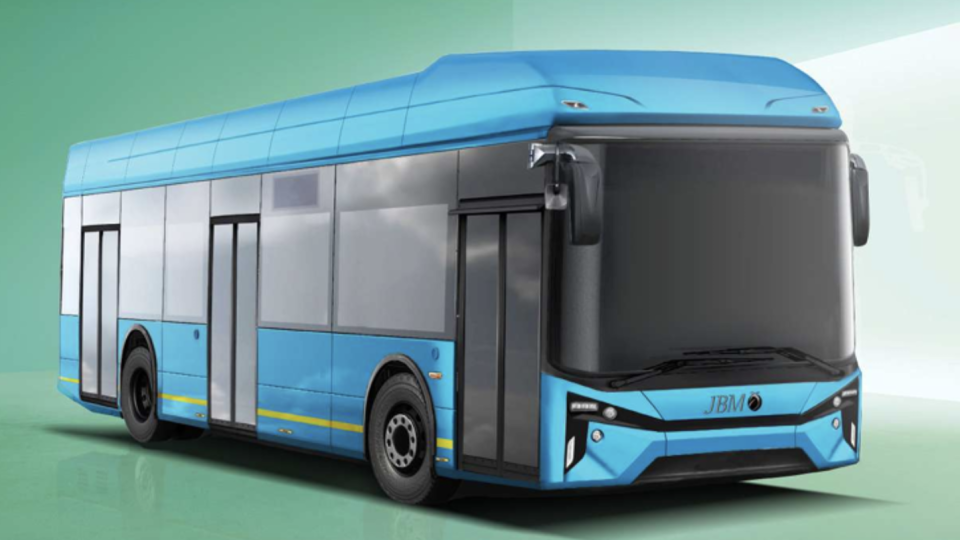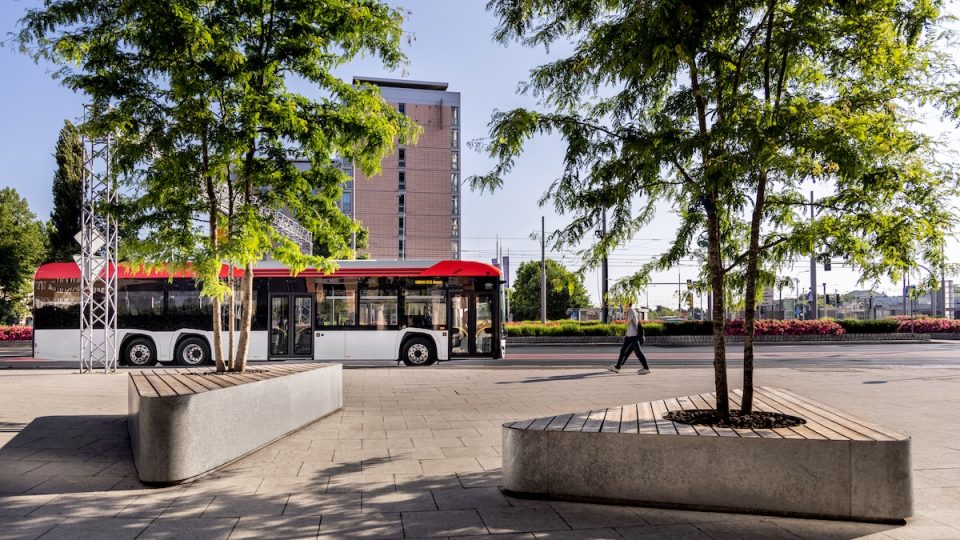Rnv expands the electric fleet by welcoming 15 eCitaro
Fifteen new electric buses signed Mercedes (eCitaro) for the urban transport of Ludwigshafen, Mannheim and Heidelberg. So the German operator Rhein-Neckar-Verkehr GmbH (Rnv) continues to expand and electrify its fleet by welcoming the first 15 of the 30 latest generation “stars” with solid state batteries, a guarantee of long life and high performance. Rhein-Neckar-Verkehr GmbH […]
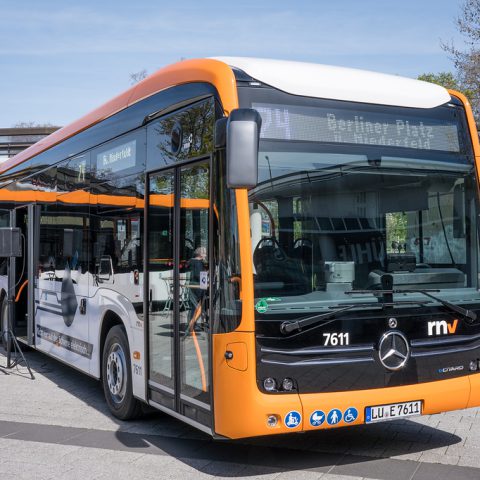
Fifteen new electric buses signed Mercedes (eCitaro) for the urban transport of Ludwigshafen, Mannheim and Heidelberg. So the German operator Rhein-Neckar-Verkehr GmbH (Rnv) continues to expand and electrify its fleet by welcoming the first 15 of the 30 latest generation “stars” with solid state batteries, a guarantee of long life and high performance.
Rhein-Neckar-Verkehr GmbH occupies a special position among local transport operators in Germany. It is the municipal transport company founded jointly by the cities of Heidelberg, Ludwigshafen and Mannheim and also operates in three federal states: Baden-Württemberg, Rhineland-Palatinate and Hesse. Rnv operates light rail, streetcar and bus lines. With more than 2,300 employees, more than 190 streetcars and light rail and about 190 buses, Rnv ensures sustainable and environmentally friendly mobility in the Rhine-Neckar metropolitan region.
Electromobility according to Rnv
Rhein-Neckar-Verkehr GmbH (Rnv) launched its e-mobility mission just over three years ago with the delivery of three Mercedes-Benz eCitaro buses. Now with the commissioning of 15 eCitaro buses for urban traffic in Ludwigshafen, this mission has gained even more importance. Another 15 eCitaro buses will go into service in the cities of Mannheim and Heidelberg in May and June.
Rüdiger Kappel, head of fleet sales at Daimler Buses Germany, said “We are very proud to hear that the experience with our Mercedes-Benz e-buses has been so positive that Rnv has ordered a total of 30 new eCitaro electric buses from us. And, of course, we are delighted that these electric buses are being used for local transport and that our employees can now also travel to work every day on these electric buses.”
“We have been investing heavily in the electrification of our bus fleet for years. From our perspective, this is an investment in the future. The cost of purchasing the 15 buses and their charging infrastructure is money well invested. It will pay for itself over the lifetime of the buses: With fuel prices as they are right now, the energy costs per mile for a diesel bus are about 60 cents, while for an electric bus only about 26 cents. This divergence is expected to be even greater in the future,” said Christian Volz, commercial director at Rnv.
“In addition to the economic aspects, the city of Ludwigshafen naturally also focuses on the environmental factor. The new electric buses consume fewer resources overall during operation. But they are also virtually emission-free in local operations and thus improve air quality and quality of life in our city,” added Alexander Thewalt, director of construction and environment for the city of Ludwigshafen.
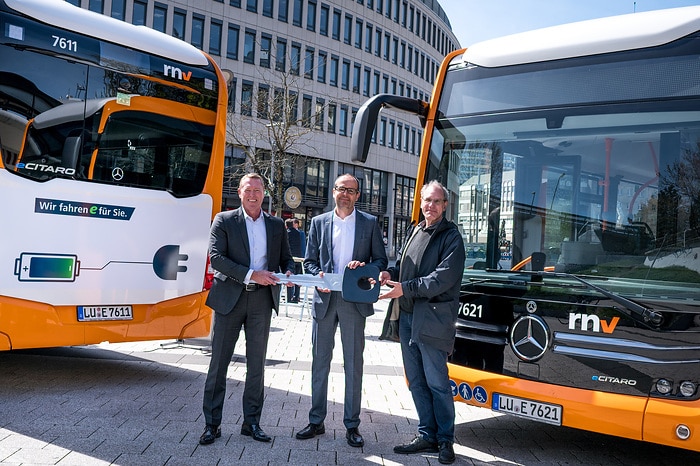
Solid-state battery technology
The new eCitaro buses are equipped with modern solid-state batteries, which are characterized by a very high energy density that is about a quarter higher than classic lithium-ion batteries with liquid electrolyte. This battery technology is also free of the chemical element cobalt. The new battery technology with an energy content of 441 kWh each is available for both the articulated bus and the single bus. Depending on the battery equipment, the eCitaro solo bus can travel up to 320 km without recharging under average speed, topography, load and basic weather conditions. Another advantage of solid-state batteries is their durability.
The heating and air conditioning system in the eCitaro is also interesting, as it is based on a CO2 heat pump. Connected to the water circuit of the units, it consumes less energy than electric sidewall heaters with blowers. The range of these vehicles also increases in winter operation. Rnv vehicles are equipped with impressive safety equipment. In addition to a reversing camera, the vehicles are distinguished, for example, by Sideguard Assist, which assists the driver when turning, or Preventive Brake Assist, an active brake assist system developed especially for city buses. Passengers have dual USB charging outlets and can follow the route, arrival times and multimedia information on a 29-inch monitor.
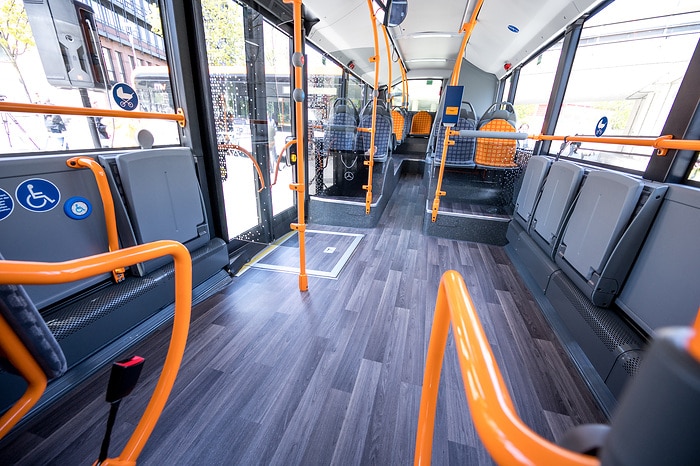
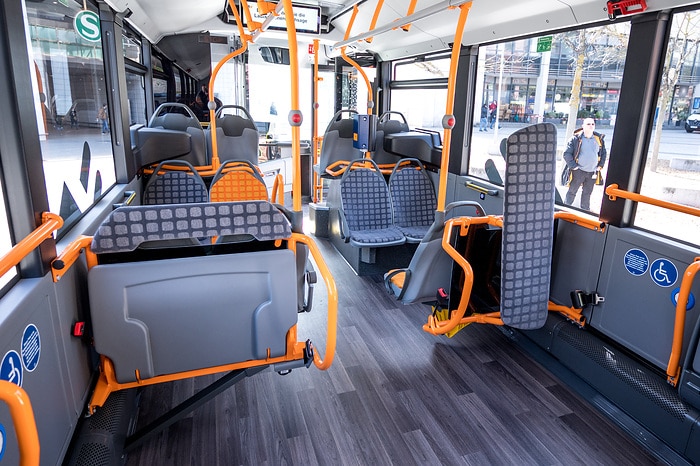
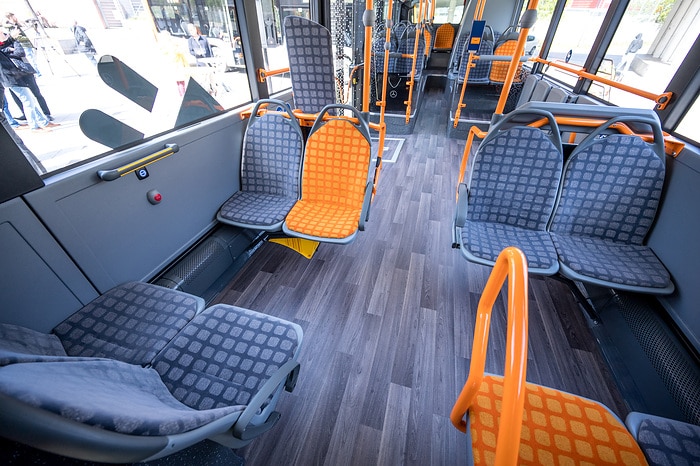
eCitaro, e-bus mission
Rnv put the world’s first eCitaro route into operation in January 2019 in the Heidelberg urban area, as the three eCitaro buses travel between the main train station and the city center on route 20; other electric bus routes followed shortly thereafter, this time in Mannheim. Since then, the eCitaro buses have been serving a new neighborhood and a new commercial area. The experience gained from these e-bus lines has led to the purchase of 30 new eCitaro buses and the upgrading of depots to include management and charging infrastructure.
